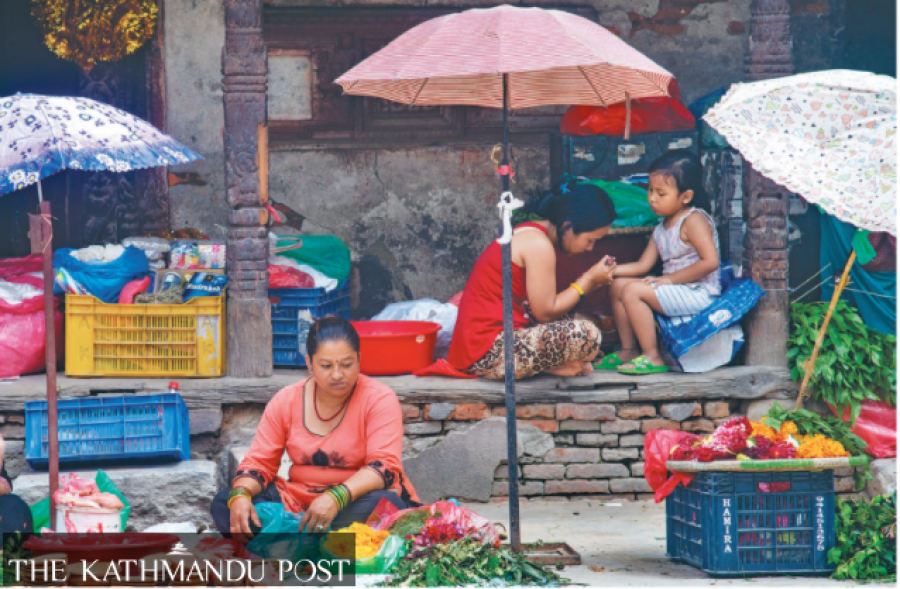Health
Changing officials too often may hit plans to jab all in next eight months
Technical manpower in health departments continues to get transferred. As new appointees take time to learn, fight against the pandemic will be affected, former officials say.
Arjun Poudel
On Monday, the Ministry of Health and Population unveiled a plan to buy over 42 million doses of Covid-19 vaccine by February next year, and inoculate all eligible citizens over 12 years before mid-April.
A day later, the ministry on Tuesday transferred several officials, including Dr Dipendra Raman Singh, director general of the Department of Health Services, serving at various agencies that have a crucial role to play in fighting the pandemic.
While government officials’ transfers can be argued as a “routine and regular process”, several former bureaucrats and public health experts the Post spoke to said that such transfers from key agencies can affect Nepal’s fight against the pandemic and its vaccination drive.
“It takes months for new officials to understand the issues, especially when the country is facing a health crisis. This can delay decision-making and action,” said an official at the Department of Health Services requesting anonymity as he feared controversy. “Not just the vaccine procurement plan, transfers of critical point officials hugely affect the country’s overall response to the pandemic.”
The Department of Health Services is the government agency responsible for procuring vaccines.
A country’s public health system is not just about infrastructure, as human resources—experienced doctors, public health specialists, laboratory technicians, information analysts and competent managers—make up a crucial component.
Transferring key persons overseeing the Covid-19 response could be counterproductive and dangerous, according to public health experts.
“Several officials serving from aid agencies also have this constant complaint and they often express their frustration at the frequent transfers of officials in Nepal,” said Dr Sarad Onta, a public health expert. “The entire communication system often gets broken down, and they have to start from scratch after new officials come in.”
After the devastating second wave, when cases were declining, complacency had set in. But with infections rising, fears have grown about a new second wave peak before the third wave strikes the country.
Though vaccine doses have started to arrive, no one is safe until everyone is safe, and to protect the country, most of the people must be vaccinated at the earliest. The only way to do that is scaling up the vaccination drive, which needs coordinated and concerted efforts of key agencies and officials.
“The recent transfer of experienced and technical manpower is an indication that the government is not showing seriousness towards public health and people’s safety,” Dr Basudev Pandey, former director at the Epidemiology and Disease Control Division, told the Post. “As we do not have institutional memory, personal memory plays an important role when it comes to dealing with the pandemic.”
Senior officials at the Ministry of Health and Population who visited all seven provinces to see what was lacking on the management side during the second wave had found a lack of coordination between the three tiers of government.
Officials with the responsibility of coming up with policies to fight the pandemic have also complained about the lack of coordination among the agencies at the centre such as the Health Ministry and the Covid-19 Crisis Management Centre.
In the last 16 months, since the start of the first wave in the country, four director generals including Dr Roshan Pokhrel, Mahendra Prasad Shrestha and Dr Dipendra Raman Singh have been transferred. Dr RP Bichha has now been appointed the director general.
Director of the Epidemiology and Disease Control Division has been transferred three times. Dr Bibek Kumar Lal and Dr Basudev Pandey were transferred while Dr Krishna Prasad Poudel, incumbent spokesperson for the Health Ministry, has been appointed.
Besides these transfers often come abruptly and officials overseeing any project are forced to abandon them.
“I was holding a crucial meeting on a seroprevalence survey across the country when I got a transfer letter,” said Pandey. “The study which was planned in January has now been delayed by more than five months.”
The recent transfer of the critical point official came at a time when new cases of coronavirus have been surging.
On Friday, Nepal reported 3,729 cases of the coronavirus. Of them, 2,430 people tested positive in the polymerase chain reaction tests and 1,299 in antigen tests. The number of active cases stood at 34,942 on Friday.
With 25 more deaths reported on Friday, the death toll has crossed the 10,000 mark to reach 10,019.
Health experts are already warning of a third wave as hospitalisation of serious Covid-19 patients is on the rise.
But for the government it is business as usual as there is a tendency in Nepal to change top officials when a new government takes charge.
“When a new government is formed, it changes the entire set of officials including those heading technical departments,” Dr Mingmar Gyelgen Sherpa, former director general of the Department of Health Services, told the Post.
“The recent transfer of the officials was expected and this reminds us that people will not get respite from the pandemic with a new government in place.”
Transferring the officials without knowing who is doing what and appointing their own people was a serious disease that has plagued the country for years.
Sherpa said it will take months for new staff to grasp the ins and outs of their departments and understand the planning of their predecessors, as there is no system in the country to facilitate the change of guard.
“This could seriously impact Nepal’s response to the coronavirus outbreak,” said Sherpa.
The political turmoil in the country since last December has already impacted Nepal’s fight against the pandemic and also vaccine procurement.
When the pandemic hit the country, Bhanubhakta Dhakal was the health minister. Then in December KP Sharma Oli, then prime minister, for the sake of political expediency reshuffled the Cabinet and made Hridayesh Tripathi the health minister. After a faction of the Janata Samajbadi Party joined the government in June, Sher Bahadur Tamang was appointed minister but he lost his job when the Supreme Court later that month ruled that a caretaker prime minister could not expand the Cabinet.
Since then the country has not had a health minister although Prime Minister Sher Bahadur Deuba appointed a minister of state for health. The appointment has been controversial and there are demands that he be removed.
“In other countries, political uncertainty does not hamper the bureaucracy, but in our country political uncertainty has a direct bearing on bureaucracy,” Dr Baburam Marasini, former director at the Epidemiology and Disease Control Division, told the Post.




 27.41°C Kathmandu
27.41°C Kathmandu















